
Find Help
More Items From Ergsy search
-

Current Flu Vaccination Recommendations and Availability
Relevance: 100%
-

How effective is the flu vaccine?
Relevance: 69%
-
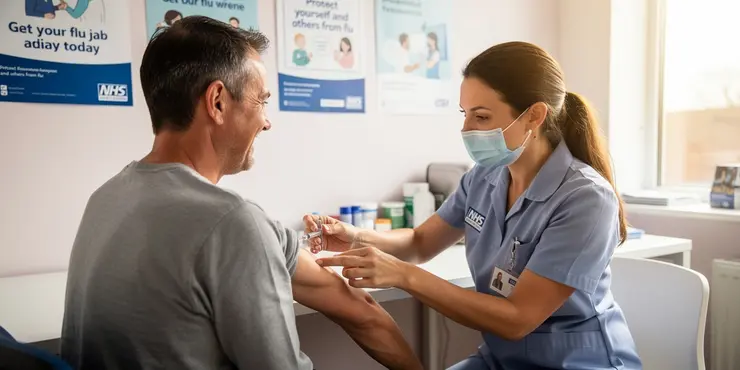
Can the flu vaccine give you the flu?
Relevance: 69%
-
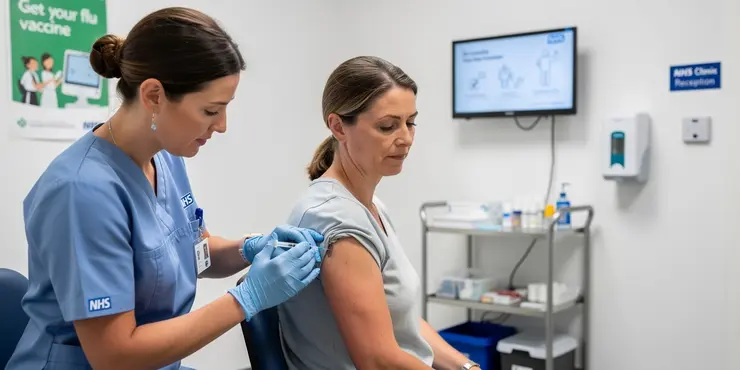
Can the flu vaccine give me the flu?
Relevance: 68%
-
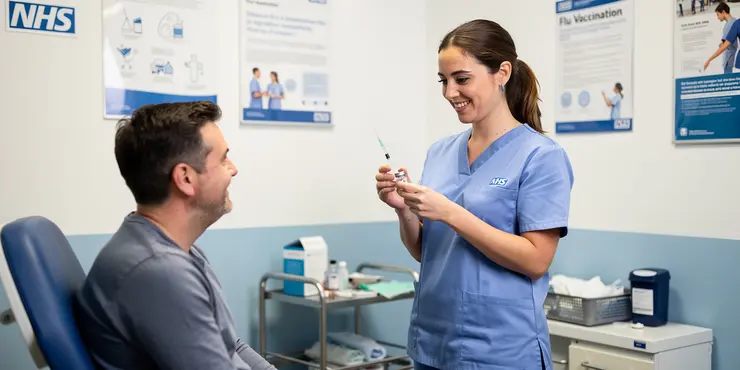
How do I book an appointment for the flu vaccine?
Relevance: 67%
-
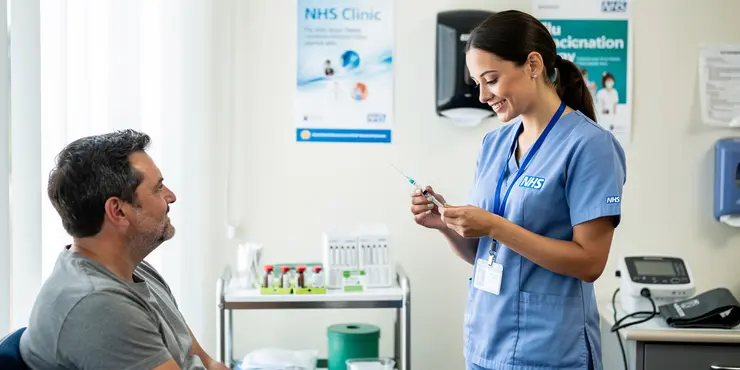
Where can I get the flu vaccine?
Relevance: 66%
-
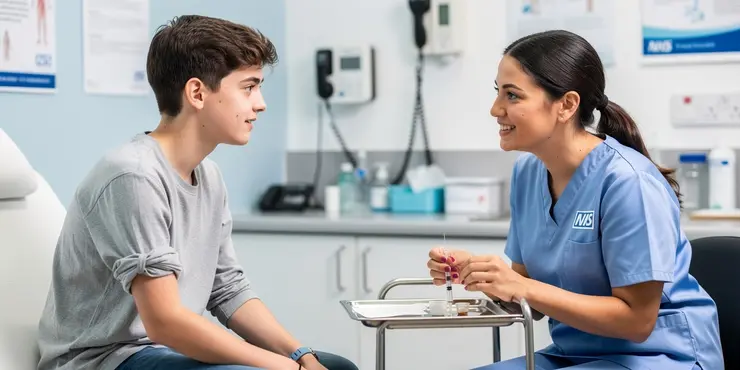
Flu vaccinations for people with a learning disability
Relevance: 66%
-
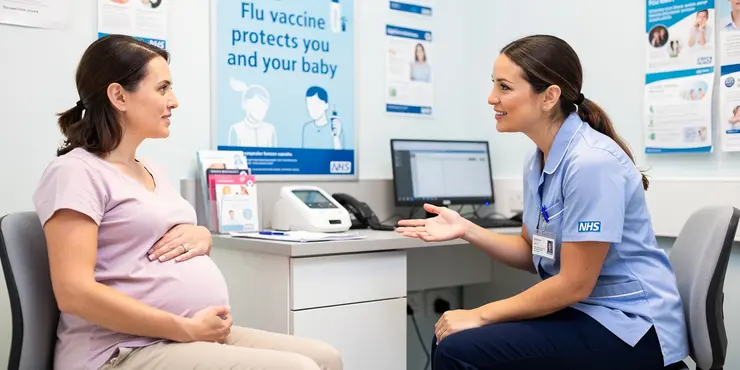
Can pregnant women get the flu vaccine?
Relevance: 65%
-
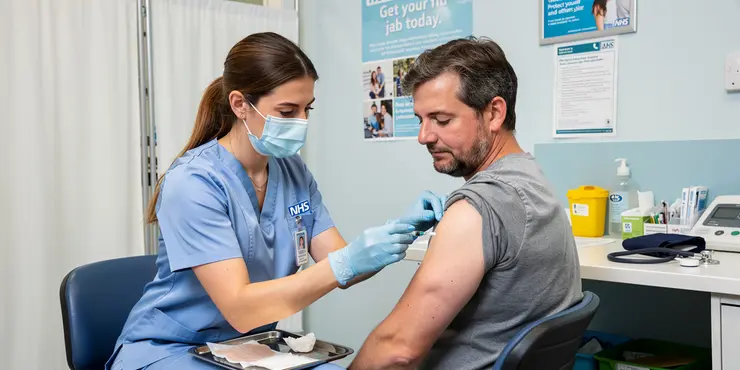
When is the best time to get the flu vaccine?
Relevance: 65%
-
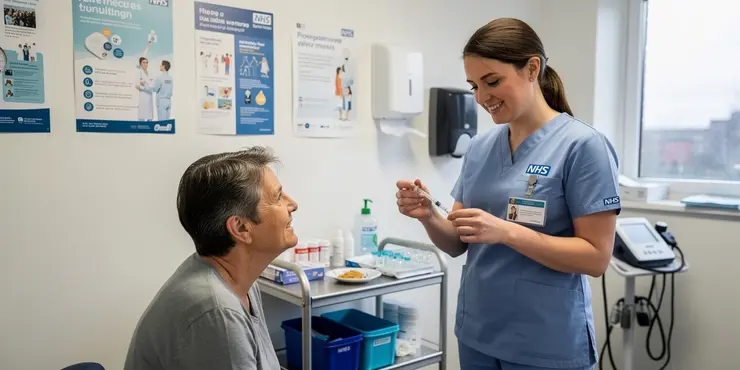
Is the flu vaccine free for everyone in the UK?
Relevance: 64%
-
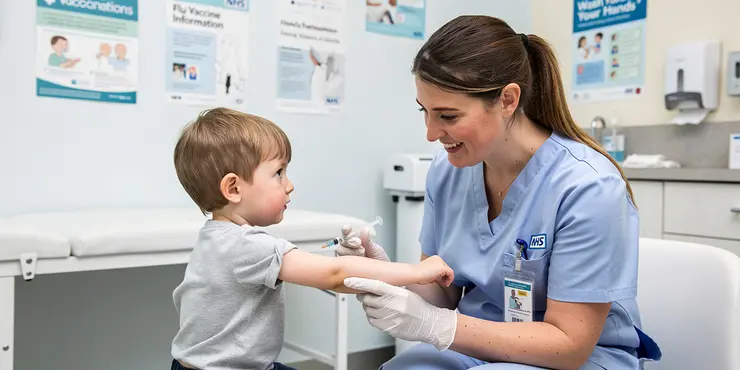
Who should get the flu vaccine in the UK?
Relevance: 63%
-
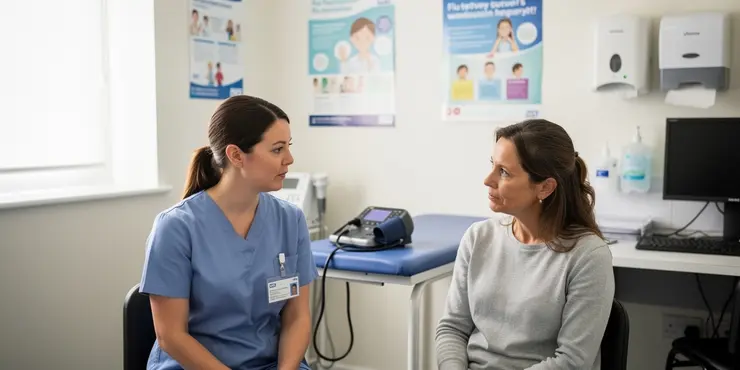
What if I'm not eligible for a free flu vaccine, can I still get vaccinated?
Relevance: 63%
-

Can children receive the flu vaccine as a nasal spray?
Relevance: 63%
-
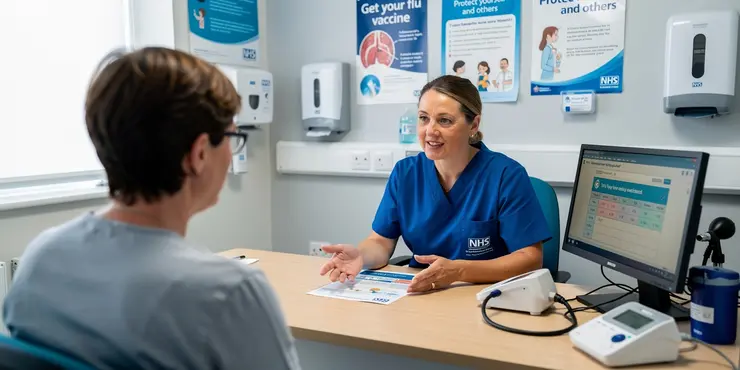
Can Super Flu be prevented by vaccines?
Relevance: 62%
-
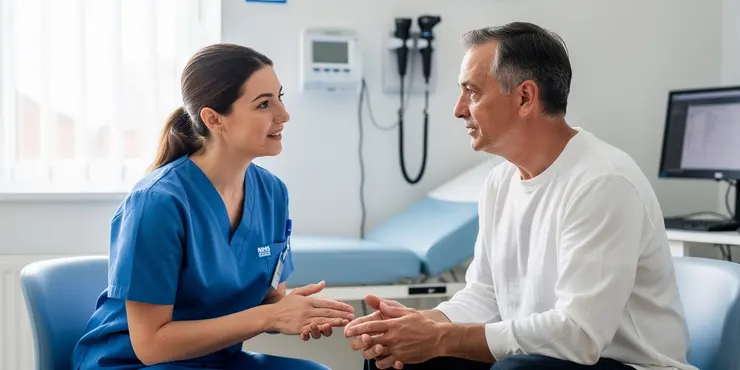
What treatments are available for Super Flu?
Relevance: 62%
-
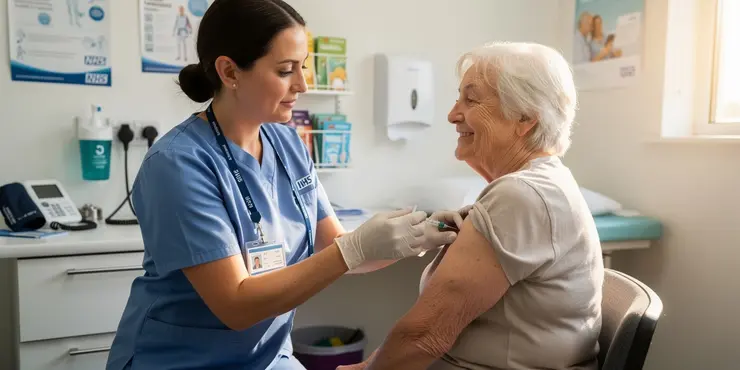
Are there any side effects to the flu vaccine?
Relevance: 61%
-

How important is it to get a flu vaccine in 2026?
Relevance: 61%
-
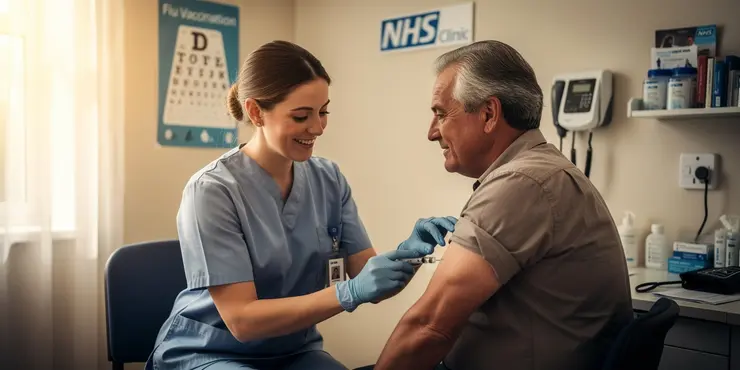
What if I have an egg allergy, can I still get the flu vaccine?
Relevance: 61%
-
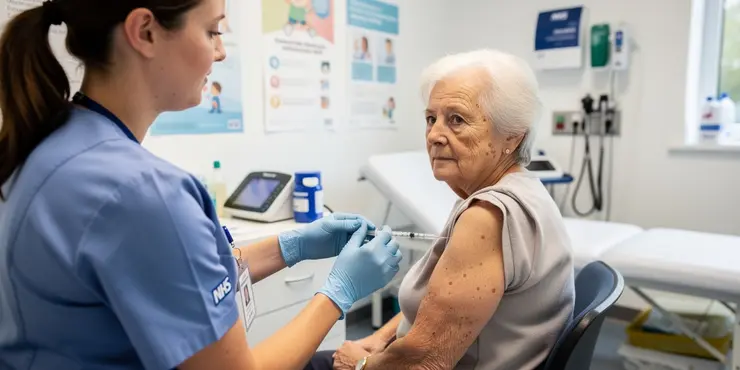
Nationwide Flu Vaccination Campaign Targets Vulnerable Populations
Relevance: 60%
-
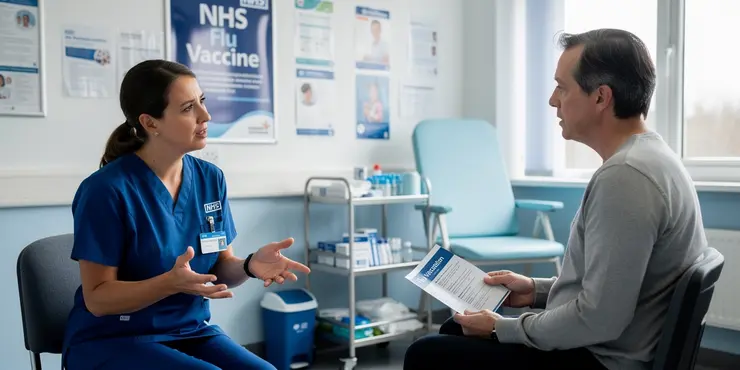
Can I still get the flu if I have been vaccinated?
Relevance: 60%
-
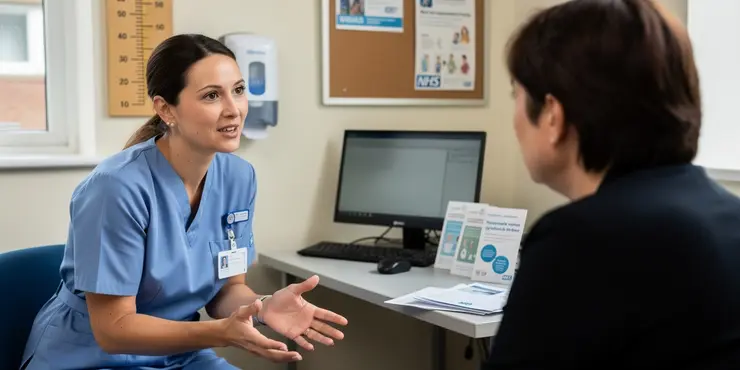
Are there vaccination recommendations for people with compromised immune systems?
Relevance: 59%
-
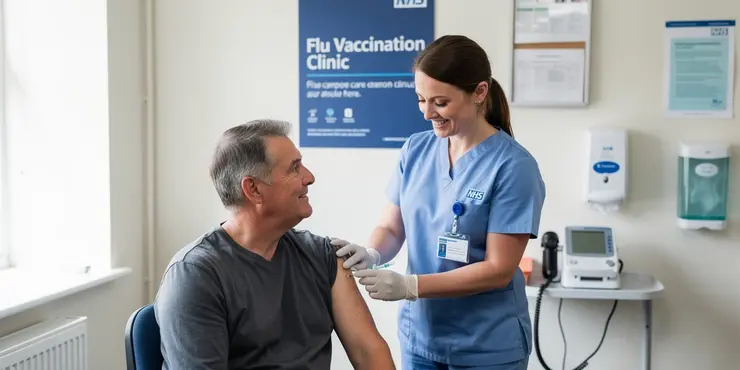
How long does it take for the flu vaccine to become effective?
Relevance: 58%
-
Does the flu vaccine protect against COVID-19?
Relevance: 58%
-
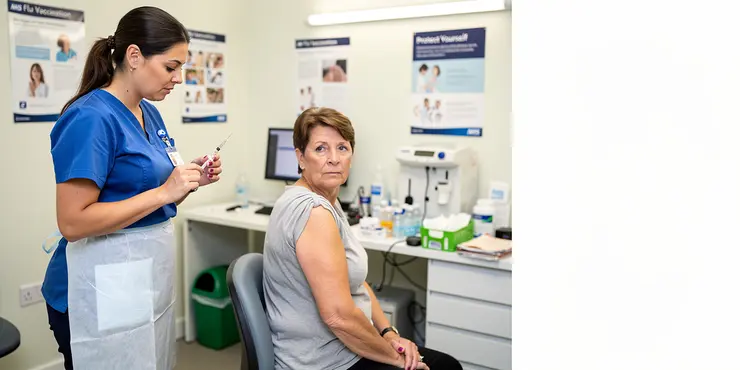
Can the flu jab give me the flu?
Relevance: 56%
-
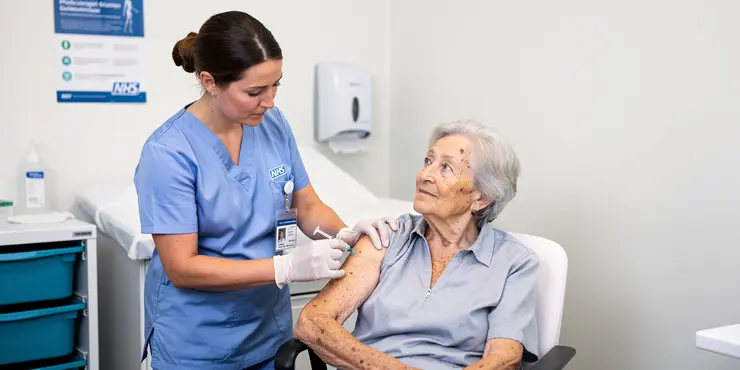
Can the flu jab give you the flu?
Relevance: 54%
-

Is there a vaccine for H3N2?
Relevance: 54%
-
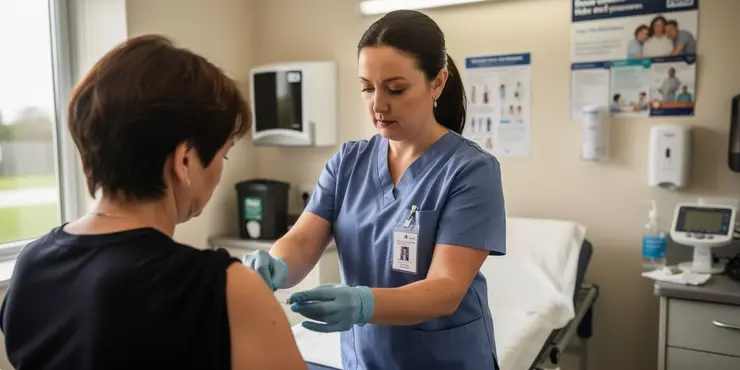
Is there a different recommendation for the MenACWY and MenB vaccines?
Relevance: 54%
-
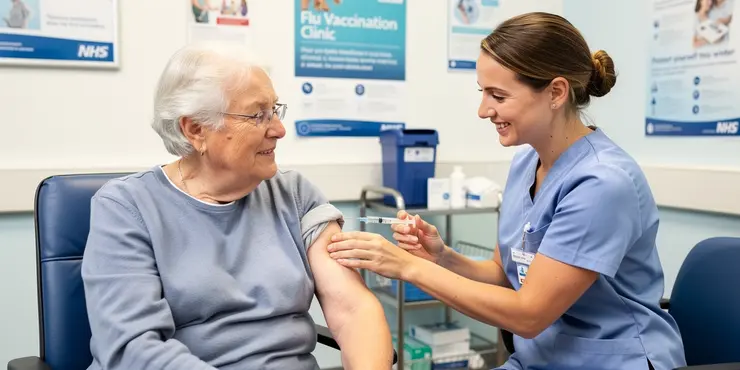
What is the winter flu jab?
Relevance: 53%
-
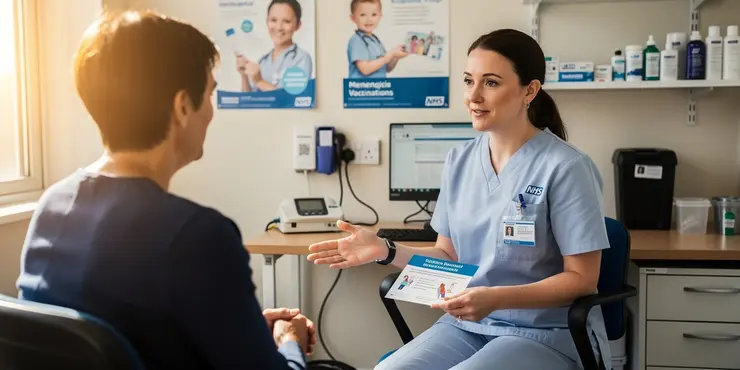
Are adults over 25 recommended for meningitis vaccination?
Relevance: 52%
-

Are infants recommended to receive the meningococcal vaccine?
Relevance: 52%
-
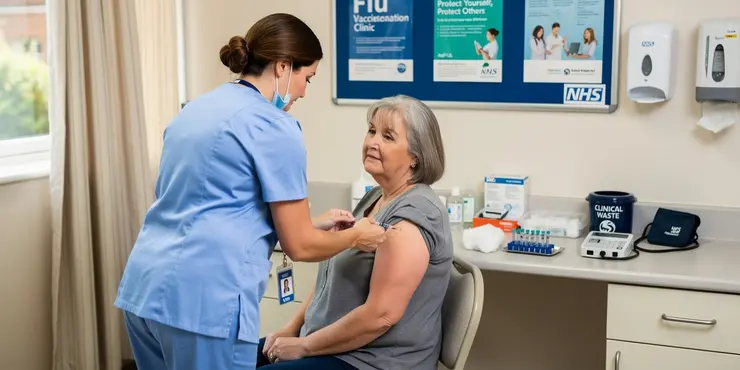
How does the winter flu jab work?
Relevance: 52%
-
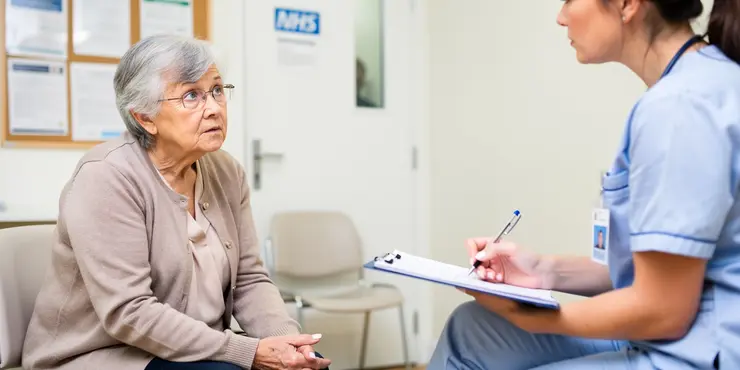
Is vaccination recommended for seniors against meningitis?
Relevance: 52%
-
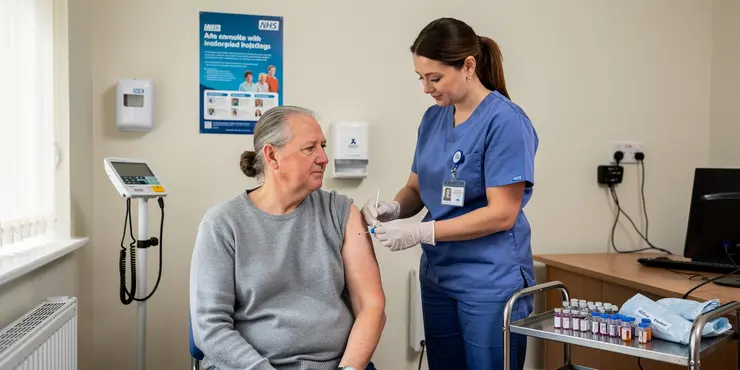
Is the flu jab necessary for healthy individuals?
Relevance: 52%
-
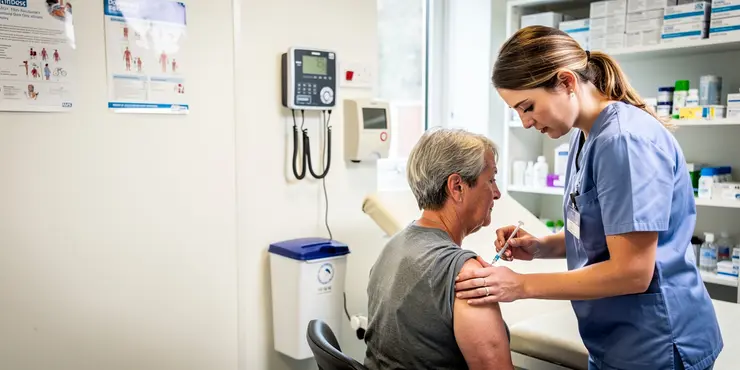
When is the best time to get the flu jab?
Relevance: 51%
-
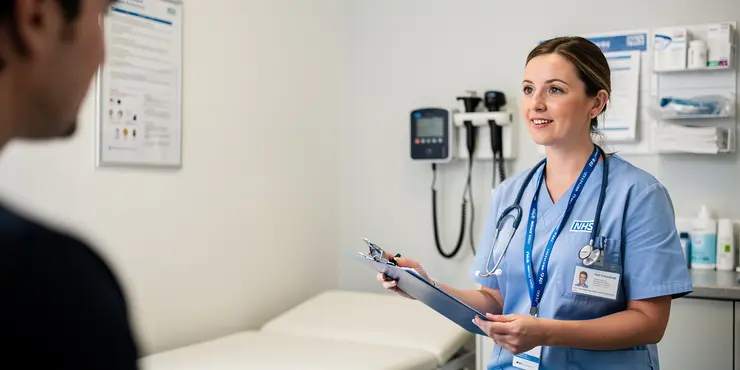
Treating flu (influenza)
Relevance: 51%
-
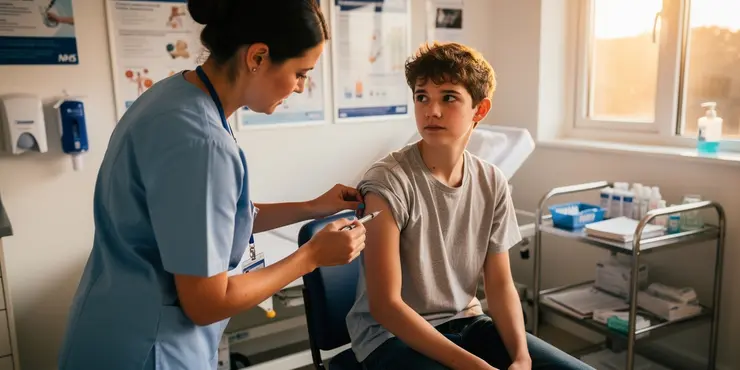
Does the CDC recommend meningitis vaccines for adolescents?
Relevance: 50%
-
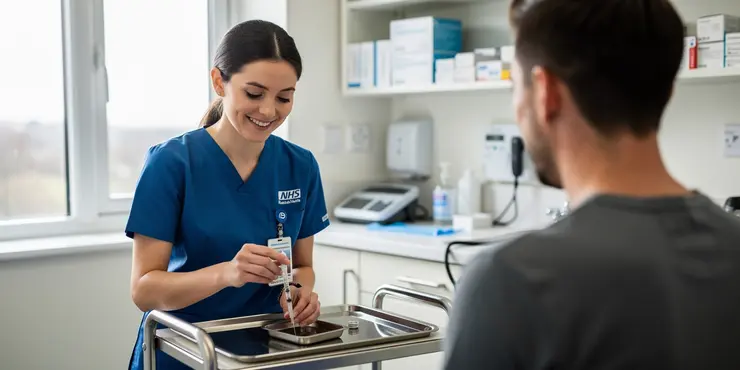
Is the winter flu jab effective against all flu strains?
Relevance: 50%
-
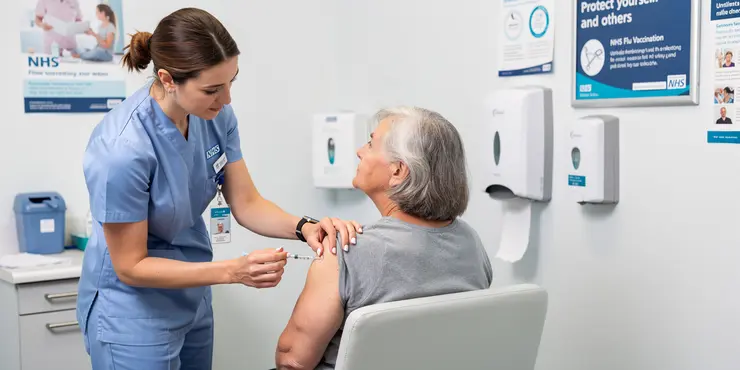
Will getting the flu jab protect me against COVID-19?
Relevance: 50%
-
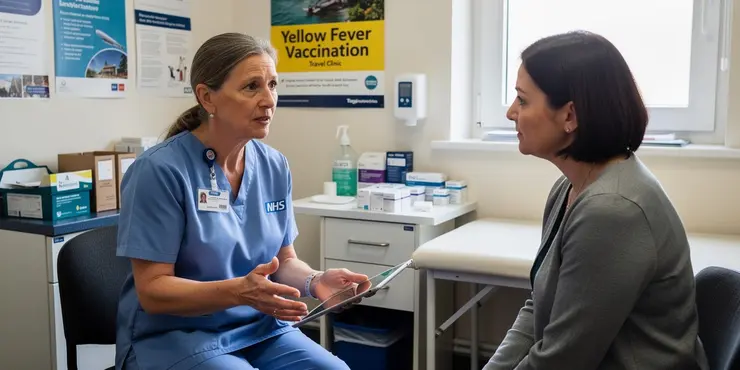
Are any vaccines available in the UK for mosquito-borne diseases?
Relevance: 49%
-
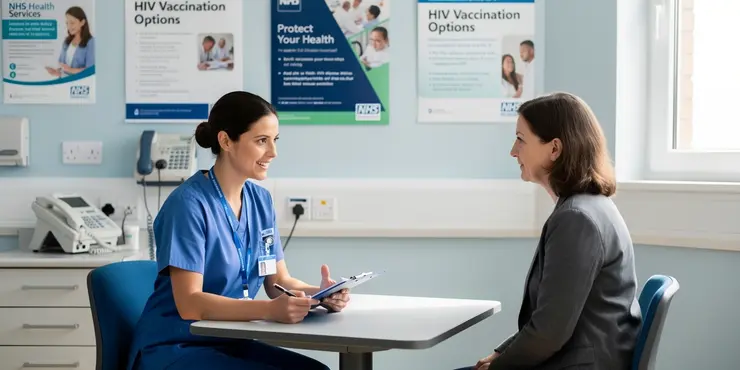
Are there vaccines available for HIV?
Relevance: 49%
Current Flu Vaccination Recommendations and Availability
Introduction
As the flu season approaches, public health authorities in the United Kingdom are encouraging all eligible individuals to get vaccinated against influenza. The flu vaccine is a crucial tool in our fight against seasonal flu, helping to protect not only the vaccinated individuals but also those around them by reducing the spread of the virus. Understanding the current recommendations and availability of flu vaccines can help ensure that you remain protected during this flu season.
Who Should Get Vaccinated?
The NHS recommends that certain groups of people, who are considered at higher risk for complications from the flu, should definitely get vaccinated. These groups include:
- Children aged 2 and 3 years (on 31 August before flu season starts)
- All primary school children and some secondary school-aged children
- Pregnant women
- Individuals aged 65 years and over
- People with certain underlying health conditions, such as heart disease, diabetes, and chronic respiratory diseases
- Residents of long-stay care homes
- Carers and people receiving a carer's allowance
- Frontline health and social care workers
Types of Flu Vaccines
Several types of flu vaccines are available in the UK, tailored to different age groups and risk factors. These include the live attenuated influenza vaccine (LAIV) administered as a nasal spray, which is particularly recommended for children, and inactivated vaccines given as an injection for older adults and those with certain medical conditions. There are also adjuvanted and high-dose vaccines for older adults to provide better protection.
Where Can You Get Vaccinated?
Flu vaccines are widely available across the UK. They can be administered at GP surgeries, pharmacies, and some community health services. Many employers also offer the flu vaccine to their staff, especially those in health and social care roles. Check with your local healthcare provider or the NHS website for specific details and to book an appointment.
Importance of Getting Vaccinated
Getting vaccinated not only protects you from contracting the flu but also reduces the spread of the virus, protecting those who are more vulnerable, such as the elderly or immunocompromised individuals. Vaccination can help prevent the strain on healthcare services, especially during the winter months when other respiratory illnesses are also prevalent.
Conclusion
Flu vaccination is a vital component of public health strategy in the UK. With numerous options available for different age groups and risk categories, it is more accessible than ever. Ensuring you and your family members get vaccinated can help protect the broader community and prevent serious health complications associated with the flu.
Current Flu Vaccination Recommendations and Availability
Importance of Flu Vaccination
The flu vaccination is a critical tool in protecting individuals from the influenza virus, which can lead to severe health complications, especially in vulnerable populations. Vaccination significantly reduces the risk of flu-related hospitalisations and provides community protection by limiting the spread of the virus.
Eligibility for the Flu Vaccine
In the UK, the flu vaccine is offered free on the NHS to various groups at high risk of flu complications. These groups include adults aged 65 and over, pregnant women, people with certain chronic health conditions (such as asthma or diabetes), and children aged 2 to 11. Frontline healthcare workers and caregivers are also eligible to receive the vaccine.
Where to Get the Flu Vaccine
The flu vaccination is available at GP surgeries, local pharmacies offering NHS services, and certain workplaces. Children are often vaccinated at school, while others can make appointments or walk into participating pharmacies to receive their vaccine. It’s recommended to get vaccinated well before flu season peaks, typically between December and March.
Availability and Accessibility
The UK government ensures that flu vaccines are readily available throughout the flu season. There is an emphasis on ensuring that high-risk groups have easy access to the vaccine. The distribution network includes general practices, pharmacies, and community vaccination centers, and there is strong encouragement for eligible individuals to get vaccinated early.
Conclusion
Flu vaccination is a vital public health strategy to prevent influenza outbreaks and protect vulnerable populations. By staying informed and taking advantage of available resources, individuals can contribute to the overarching goal of minimizing flu-related illnesses and healthcare burdens in the UK.
Current Flu Vaccination Recommendations and Availability
Introduction
Flu season is coming soon. Health experts in the UK say everyone who can get the flu vaccine should do so. The flu vaccine helps stop people from getting sick. It also stops the flu from spreading to others. Knowing who should get the vaccine and where to get it will help keep you safe this flu season.
Who Should Get Vaccinated?
The NHS says certain people should get the flu vaccine. These people are more likely to get very sick from the flu. The people who should get the vaccine are:
- Children who are 2 or 3 years old (before flu season starts)
- All children in primary school and some in secondary school
- Pregnant women
- Anyone who is 65 years old or older
- People with certain health problems like heart disease or diabetes
- People who live in long-term care homes
- Caregivers and people who get a carer's allowance
- Health and social care workers who work with the public
Types of Flu Vaccines
There are different types of flu vaccines in the UK. Kids often get a nasal spray vaccine. Other people might get an injection. There are special vaccines for older adults, too. Talk to your doctor to learn which vaccine is right for you.
Where Can You Get Vaccinated?
You can get the flu vaccine in lots of places in the UK. The vaccine is available at doctor’s offices, pharmacies, and health clinics. Some workplaces, especially in health and social care, offer the vaccine to staff. Check with your doctor or the NHS website to book your vaccine.
Importance of Getting Vaccinated
Getting the flu vaccine helps keep you safe from the flu. It also helps protect other people, like older adults and people who are very sick. It can also help hospitals and doctors when lots of people are sick with colds and other illnesses during winter.
Conclusion
Flu vaccines are very important for public health in the UK. There are vaccines for all ages and health needs. Getting vaccinated helps keep you and others in your community healthy. Make sure you and your family get the flu vaccine to stay safe this flu season.
Flu Vaccine Advice and Where to Get It
Why the Flu Vaccine is Important
Getting the flu vaccine can help keep you safe from getting really sick with the flu. The flu can make some people very ill. The vaccine helps stop people from going to the hospital and stops the flu spreading.
Who Can Get the Flu Vaccine
In the UK, some people can get the flu vaccine for free. This includes people over 65 years old, pregnant women, people with some health problems like asthma or diabetes, and children aged 2 to 11. Nurses and doctors can also get the vaccine. Caregivers are included too.
Where You Can Get the Flu Vaccine
You can get the flu vaccine at doctor's offices, pharmacies, and some workplaces. Kids often get it at school. It is a good idea to get the vaccine before flu season, which is usually December to March.
How to Get the Vaccine Easily
The UK government makes sure the flu vaccine is easy to get during the flu season. Doctors, pharmacies, and health centers all have the vaccine. If you can get the vaccine, try to do it early.
Final Thoughts
The flu vaccine is important to keep people safe and healthy. By knowing what to do and where to go, we can help stop the flu from spreading. This helps keep everyone healthier in the UK.
Frequently Asked Questions
Who should get the flu vaccine in the UK?
In the UK, the flu vaccine is recommended for everyone aged 6 months and older, particularly those at increased risk such as older adults, pregnant women, children aged 2 to 11 years, and individuals with underlying health conditions.
Where can I get the flu vaccine?
You can get the flu vaccine at your GP surgery, a local pharmacy offering the service, or through your midwife if you’re pregnant.
Is the flu vaccine free for everyone in the UK?
The flu vaccine is free on the NHS for many groups, including people aged 50 and over, those with certain health conditions, pregnant women, children aged 2 to 11, and frontline health and social care workers.
When is the best time to get the flu vaccine?
The best time to get vaccinated is in the autumn, from October to early November, before flu starts spreading.
If I had the flu vaccine last year, do I need to get it again this year?
Yes, it is important to get the flu vaccine every year as the circulating strains of the flu virus can change, and the vaccine is updated accordingly.
Can the flu vaccine give me the flu?
No, the flu vaccine cannot give you the flu as it contains an inactivated virus that is not infectious.
Are there any side effects to the flu vaccine?
Most side effects are mild and may include soreness at the injection site, slight fever, and muscle aches. These usually subside after a day or two.
Can pregnant women get the flu vaccine?
Yes, it is safe and recommended for pregnant women to get the flu vaccine to protect both themselves and their baby.
What if I have an egg allergy, can I still get the flu vaccine?
If you have an egg allergy, you should consult with your GP. Most people with egg allergies can receive the flu vaccine safely.
How effective is the flu vaccine?
The effectiveness of the flu vaccine can vary each year, but it significantly reduces the risk of flu-associated respiratory illnesses and the need for hospitalization.
What if I'm not eligible for a free flu vaccine, can I still get vaccinated?
Yes, if you are not eligible for a free vaccine, you can still pay for a private flu vaccination at pharmacies or selected private clinics.
How long does it take for the flu vaccine to become effective?
It takes about 10 to 14 days from the time of vaccination for it to become effective.
Can children receive the flu vaccine as a nasal spray?
Yes, children aged 2 to 17 years old are typically offered the live attenuated influenza vaccine (LAIV) which is given as a nasal spray.
Does the flu vaccine protect against COVID-19?
No, the flu vaccine does not protect against COVID-19, but it helps reduce flu-related illnesses and thus prevents extra strain on healthcare services during the pandemic.
How do I book an appointment for the flu vaccine?
You can usually book an appointment for the flu vaccine through your GP, at participating pharmacies, or sometimes via online NHS services.
Who should have the flu shot in the UK?
Some people need a flu shot to help keep them healthy. This is who should get it:
- Children, especially kids 2 years old up to year 6 students.
- People who are 65 years old or older.
- Anyone who is pregnant.
- People with health problems like asthma or diabetes.
- People who live in a care home.
- Carers who help someone because of their age or illness.
If you think you or someone you care about might need the flu shot, talk to a doctor or nurse. They can help you find out.
You can also use picture charts or voice notes to help understand if you need to get the flu shot.
In the UK, doctors say it's good for everyone over 6 months old to get the flu shot. This is extra important if you are older, having a baby, a child aged 2 to 11, or if you have health problems.
Where can I get the flu shot?
You can get the flu shot in a few different places:
- A doctor’s office
- A pharmacy, like a drugstore
- A health clinic
If you need help finding a place:
- Ask a family member or friend
- Call your doctor
- Use online maps to find nearby places
Remember, getting a flu shot helps keep you healthy!
You can get a flu shot at your doctor's office or at a pharmacy nearby. If you are going to have a baby, your nurse or midwife can also give it to you.
Can everyone in the UK get the flu vaccine for free?
The flu vaccine is free for lots of people on the NHS. This includes:
- People who are 50 years old and older
- People with some health problems
- Pregnant women
- Children aged 2 to 11
- People who work in health and social care
It's important to get the flu vaccine to stay healthy.
You can ask a doctor or nurse if you need help. They can give you more information.
When should I get the flu shot?
It is best to get the flu shot in the fall. This is because the flu season usually starts in October. Getting the shot early can help protect you.
Ask an adult or a doctor to help you remember.
The best time to get your vaccine is in the fall. This means from October to early November. This is before the flu starts spreading around.
I had the flu vaccine last year. Do I need it again this year?
If you got the flu vaccine last year, you should get it again this year. The flu vaccine helps protect you from getting sick. The flu changes every year, so last year's vaccine may not work this year. It is a good idea to get the new vaccine every year to stay safe.
If you need help remembering to get your vaccine, you can:
- Ask someone to remind you.
- Put a reminder in your phone or calendar.
- Talk to your doctor or nurse about your flu vaccine.
Yes, it is important to get the flu shot every year. This is because the flu virus can change. The flu shot is updated to keep it working well.
Can the flu shot make me sick with the flu?
No, the flu shot cannot make you get the flu. The shot protects you from getting really sick.
Tip: To understand better, you can ask someone to explain it to you or use pictures to help.
No, the flu shot cannot make you sick with the flu. It has a dead virus inside, so it can't make you sick.
Does the flu shot cause any problems?
The flu shot can sometimes cause minor problems. Here are some things you might feel after getting the shot:
- Your arm might hurt a little where you got the shot.
- You might get a headache.
- You might feel tired or sleepy.
- Sometimes, you might have a mild fever.
If you feel worried about how you are feeling after the shot, talk to a doctor or nurse. They can help you understand what's going on and what to do next.
To make reading easier, try these tips:
- Read slowly and take your time.
- Ask someone to read with you.
- Use a pen to follow the words as you read.
Most side effects are not serious. You might feel a little sore where you got the shot. You could have a small fever and your muscles might ache. These feelings usually go away in a day or two.
Can pregnant women get the flu vaccine?
If you are going to have a baby, it is safe to get the flu shot. It helps keep you and your baby healthy. Ask your doctor to explain it to you if you are not sure.
If you need help, try asking someone you trust to read it with you. You can also use apps or websites that read text out loud.
Yes, it is safe for pregnant women to get the flu shot. It's a good idea because it helps keep both them and their baby healthy.
I am allergic to eggs. Can I get a flu shot?
If you are allergic to eggs, talk to your doctor. Most people who are allergic to eggs can get the flu shot safely.
How well does the flu vaccine work?
The flu vaccine helps protect you from getting the flu. It works better some years than others. It can stop you from getting very sick.
Here are some tips to understand better:
- Ask your doctor if you have questions.
- Use pictures to learn about the flu vaccine.
- Talk to someone you trust about the flu vaccine.
Remember, getting the flu vaccine can help keep you well!
The flu shot works differently each year. But, it helps stop people from getting very sick with the flu. It also helps keep people out of the hospital.
To make reading easier, you can:
- Use a ruler or finger to follow the words.
- Read with a buddy who can help you understand.
- Take breaks if you get tired.
If I can't get a free flu shot, can I still get one?
If you can't get a free flu shot, you can still get a flu shot. You might need to pay for it. Ask a doctor or pharmacist. They can tell you where to get it and how much it costs.
To help you understand, you can:
- Ask someone you trust to help explain.
- Use a computer or phone to look up more information.
Yes, you can still get a flu shot if you can't get one for free. You can go to a pharmacy or some private clinics and pay for it.
How long until the flu shot works?
After you get a flu shot, it takes about two weeks to start working. During this time, your body makes defenses to fight the flu.
If you need help understanding this, you can:
- Ask someone you trust to help explain it.
- Use a calendar to mark two weeks from the day you got the shot.
After you get the vaccine, it takes about 10 to 14 days to start working.
Can kids get the flu vaccine as a nose spray?
Yes, kids can get the flu vaccine as a spray in the nose. It is easy and quick. This helps keep them safe from the flu.
If reading is hard, you can use pictures or ask someone to read with you.
Yes, kids who are 2 to 17 years old can get a special flu vaccine. This vaccine is a spray that goes in the nose.
Can the flu shot stop you from getting COVID-19?
The flu shot helps you not get the flu. But, it does not stop COVID-19.
To be safe from COVID-19, you need a COVID-19 vaccine.
Use these tips to help understand:
- Ask someone to read with you.
- Use pictures to help you learn.
- Take breaks if you need to.
The flu shot does not stop COVID-19. But it does help stop people from getting sick with the flu. This is good because it makes it easier for doctors and nurses to help people during the pandemic.
How can I book a time for my flu shot?
You can book a flu jab in a few ways. You can call your doctor, go to certain pharmacies, or sometimes use NHS online services.
Useful Links
This website offers general information and is not a substitute for professional advice.
Always seek guidance from qualified professionals.
If you have any medical concerns or need urgent help, contact a healthcare professional or emergency services immediately.
Some of this content was generated with AI assistance. We’ve done our best to keep it accurate, helpful, and human-friendly.
- Ergsy carfully checks the information in the videos we provide here.
- Videos shown by Youtube after a video has completed, have NOT been reviewed by ERGSY.
- To view, click the arrow in centre of video.
- Most of the videos you find here will have subtitles and/or closed captions available.
- You may need to turn these on, and choose your preferred language.
- Go to the video you'd like to watch.
- If closed captions (CC) are available, settings will be visible on the bottom right of the video player.
- To turn on Captions, click settings .
- To turn off Captions, click settings again.
More Items From Ergsy search
-

Current Flu Vaccination Recommendations and Availability
Relevance: 100%
-

How effective is the flu vaccine?
Relevance: 69%
-

Can the flu vaccine give you the flu?
Relevance: 69%
-

Can the flu vaccine give me the flu?
Relevance: 68%
-

How do I book an appointment for the flu vaccine?
Relevance: 67%
-

Where can I get the flu vaccine?
Relevance: 66%
-

Flu vaccinations for people with a learning disability
Relevance: 66%
-

Can pregnant women get the flu vaccine?
Relevance: 65%
-

When is the best time to get the flu vaccine?
Relevance: 65%
-

Is the flu vaccine free for everyone in the UK?
Relevance: 64%
-

Who should get the flu vaccine in the UK?
Relevance: 63%
-

What if I'm not eligible for a free flu vaccine, can I still get vaccinated?
Relevance: 63%
-

Can children receive the flu vaccine as a nasal spray?
Relevance: 63%
-

Can Super Flu be prevented by vaccines?
Relevance: 62%
-

What treatments are available for Super Flu?
Relevance: 62%
-

Are there any side effects to the flu vaccine?
Relevance: 61%
-

How important is it to get a flu vaccine in 2026?
Relevance: 61%
-

What if I have an egg allergy, can I still get the flu vaccine?
Relevance: 61%
-

Nationwide Flu Vaccination Campaign Targets Vulnerable Populations
Relevance: 60%
-

Can I still get the flu if I have been vaccinated?
Relevance: 60%
-

Are there vaccination recommendations for people with compromised immune systems?
Relevance: 59%
-

How long does it take for the flu vaccine to become effective?
Relevance: 58%
-
Does the flu vaccine protect against COVID-19?
Relevance: 58%
-

Can the flu jab give me the flu?
Relevance: 56%
-

Can the flu jab give you the flu?
Relevance: 54%
-

Is there a vaccine for H3N2?
Relevance: 54%
-

Is there a different recommendation for the MenACWY and MenB vaccines?
Relevance: 54%
-

What is the winter flu jab?
Relevance: 53%
-

Are adults over 25 recommended for meningitis vaccination?
Relevance: 52%
-

Are infants recommended to receive the meningococcal vaccine?
Relevance: 52%
-

How does the winter flu jab work?
Relevance: 52%
-

Is vaccination recommended for seniors against meningitis?
Relevance: 52%
-

Is the flu jab necessary for healthy individuals?
Relevance: 52%
-

When is the best time to get the flu jab?
Relevance: 51%
-

Treating flu (influenza)
Relevance: 51%
-

Does the CDC recommend meningitis vaccines for adolescents?
Relevance: 50%
-

Is the winter flu jab effective against all flu strains?
Relevance: 50%
-

Will getting the flu jab protect me against COVID-19?
Relevance: 50%
-

Are any vaccines available in the UK for mosquito-borne diseases?
Relevance: 49%
-

Are there vaccines available for HIV?
Relevance: 49%


